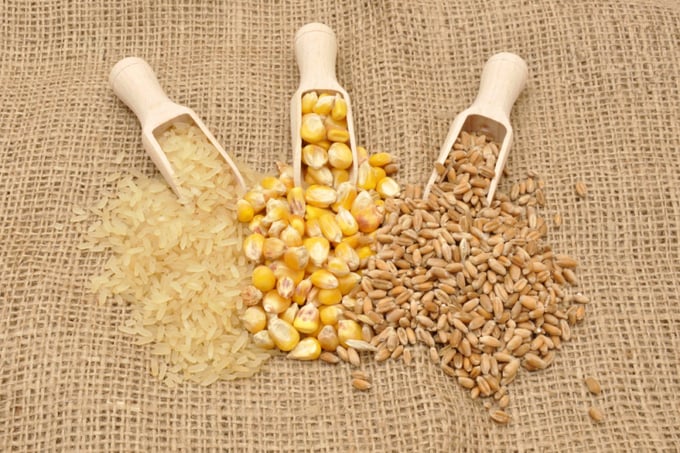November 25, 2025 | 13:59 GMT +7
November 25, 2025 | 13:59 GMT +7
Hotline: 0913.378.918
November 25, 2025 | 13:59 GMT +7
Hotline: 0913.378.918

International prices of coarse grains dropped by 5.6% in November, led by a sharp fall in corn prices, while wheat prices declined by 2.4%, the FAO said. Its All-Rice Price Index remained stable month-on-month amidst contrasting price movements across different origins and market segments.
International prices of coarse grains dropped by 5.6% in November, led by a sharp fall in corn prices, while wheat prices declined by 2.4%, the FAO said. Its All-Rice Price Index remained stable month-on-month amidst contrasting price movements across different origins and market segments.
However, with lower international cereal quotations offset by higher prices of vegetable oils, the FAO Food Price Index, which tracks monthly changes in the international prices of a set of globally-traded food commodities, averaged 120.4 points in November, unchanged from its level in the previous month and 10.7% lower than in November 2022.
In a separate report, the FAO also raised its forecast for this season’s harvests in a new Cereal Supply and Demand Brief. World cereal production in 2023 is now pegged at 2.823 billion tonnes, up 0.9% from the previous year and 10.3 million tonnes above the previous record high reached in 2021.
Upward revisions were made for wheat output in the Russian Federation and Turkey, and for corn in the United States, while production forecasts were reduced somewhat for Argentina and Brazil. Forecasts for corn production were trimmed for the European Union and Mexico. The FAO also expects global rice production in 2023-24 to rise by 0.8% from the previous marketing season.
Looking ahead to the next season, planting of the 2024 winter wheat crop is ongoing in the Northern Hemisphere countries and, reflecting lower crop prices, area growth could be limited, the FAO said. Sowing of the 2024 coarse grain crops is ongoing in the Southern Hemisphere countries, with slower sowings in Brazil but a rebound in Argentina.
World cereal total utilization in 2023-24 is forecast at 2.813 million tonnes, 1.1% higher than in 2022-23. World cereal stocks by the end of the 2023-24 season are predicted to rise by 2.7% above their opening level and mark a new record high. Based on the latest forecasts, the global cereal stock-to-use ratio would be 30.8% in 2023-24, indicating an overall comfortable supply level, the report said.
World trade in cereals in 2023-24 is forecast to contract slightly to 468.4 million tonnes, down 1.8% from the 2022-23 level.
(WG)
/2025/11/24/3616-2-141832_513.jpg)
(VAN) FSC certification has helped increase the value of thousands of hectares of planted forest timber under the management of the Xuan Loc Protection Forest Management Board, particularly in terms of selling prices.

(VAN) More than 100 shoppers queued for a chance to get a kilo or so of Japanese rice for 500 yen ($3.32) by heaping as much grain into a small wooden box as possible.

(VAN) Benchmark international prices of milled declined in October as harvests started or improved in some parts of the globe.

(VAN) Show cause orders will be issued to retailers who sell imported rice at prices exceeding the maximum suggested retail price (MSRP) of P43 per kilo, Philippines Agriculture Secretary said in a statement on Thursday.

(VAN) Coffee prices on October 20, 2025, remained stable domestically, trading at 113,500–114,500 VND/kg. Similarly, global coffee prices also moved sideways.

(VAN) By October, Vietnam’s coffee exports had surpassed USD 7 billion for the first time and will exceed USD 8 billion within this year.

(VAN) Illinois rancher says Texas, Oklahoma, Kansas lost grass and forage, forcing massive cattle liquidation.